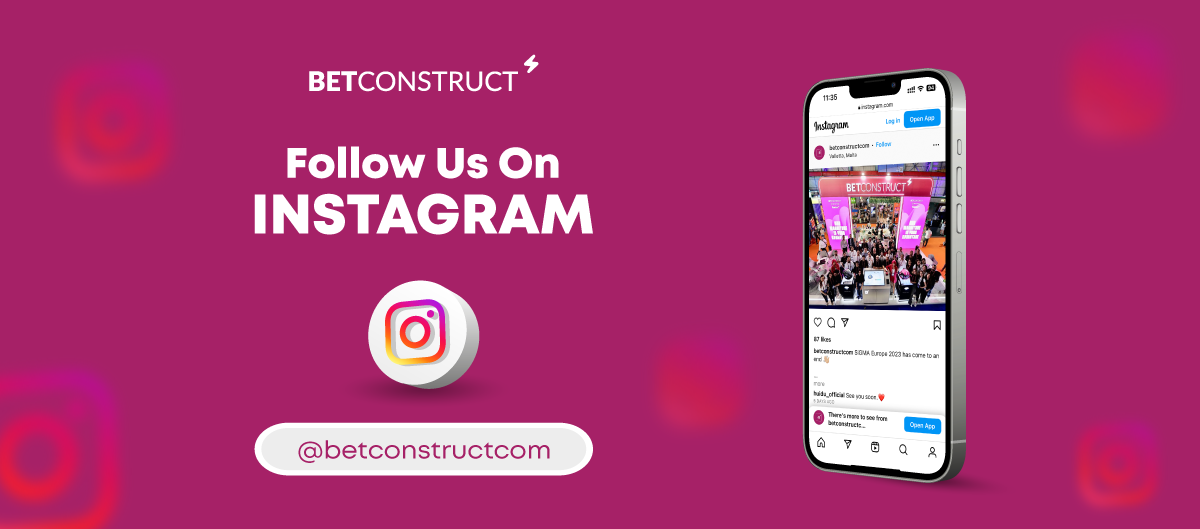For decades, placing a wager on a favourite sports team at a retail betting establishment has been a popular way to add an extra excitement while watching matches. It was a kind of social activity, often shared with friends and strangers alike, as they placed bets and eagerly awaited the match's outcome in real-time.
However, with the emergence of the internet, the landscape of betting has drastically changed. Nowadays, anyone can place a bet from the comfort of his own house, but has this convenience come at the cost of the excitement once found in physical betting establishments?
The appearance of online betting software has led many experts to question the future of retail betting. Is it truly a relic of the past, or does it still hold relevance? In this article, we will examine the advantages and disadvantages of retail betting for both bettors and businesses, compare and contrast the differences between online and land-based betting solutions, and consider the potential future of retail betting.
But before delving into these topics, let us first explore the meaning and history of retail betting.
Table of Contents
What is Retail Betting?

Retail betting, also known as land-based betting, refers to the traditional practice of placing wagers on various sporting and non-sporting events at a physical location such as a bet shop or casino.
To place a bet in retail establishments, one gets into a betting shop and provides the betslip combination and amount of bet to the cashier for processing. If the bet is successful, the bettor will receive a payout from the cashier.
The earliest recorded instance of sports betting dates back to around 2,000 years ago. Throughout history, it has evolved from ancient Romans placing bets on gladiator games to English people frequenting horse tracks in the 1700s and to our contemporaries placing bets with just a few taps on our phones.
Nowadays, retail betting is still a significant industry, with establishments ranging from small independent bookmakers to large multi-billion-dollar establishments offering a diverse array of betting options, including sports betting, horse racing, lottery draws, greyhound racing, and more.
In the following paragraph, we will explore the rich history of Retail betting. However, if you're looking for more practical information, click here.
The History of Retail Betting

Let's explore the developments of retail betting business and betshops throughout history.
Betting in Ancient Greece
Betting culture has its roots in antiquity, with the Greeks being among the first to recognise the excitement of betting games. According to the ancient Greek myths, the Olympian gods were engaged in gaming; for example, one of the narratives is that the brothers Zeus, Hades, and Poseidon played a dice game to determine who would be the ruler of different realms of the universe.
Dice games were popular forms of gambling in ancient Greece. Knucklebones (astragaloi) which were the anklebones of sheep or goats, were tossed like dice, similar to modern-day craps. "Aphrodite's Throw” was a dice game in which the players tossed four knucklebones that simultaneously landed on four distinct numbers. One of the most well-known instances of ancient Greek betting was during the Olympic Games, attracting participants and spectators from all over Greece. People would place bets on the outcomes of events, ranging from chariot races to wrestling matches.
In ancient Greek society, betting was not just a form of entertainment but was deeply ingrained in various aspects of the culture. Temples often organised lotteries as a means of fundraising: pilgrims and worshippers would buy tickets with the hope of winning valuable prizes, and the proceeds would go towards the maintenance of the temple or the funding of public projects.
The theatre, one of the most significant cultural institutions in ancient Greece, was placing bets on the outcome of dramatic competitions. These bets were not only a form of entertainment but also a way for individuals to express their opinions on the quality of a performance. In the democratic city-states of ancient Greece, the vibrant political life resulted in the development of political betting. The citizens were betting on political outcomes, such as the results of elections or the success of particular policies.
Here are some other examples of interesting types of betting:
The oracle predictions, in which people sought guidance from oracles, made offerings and placed bets on the outcome of their inquiries. Symposium betting was a social gathering where Greek men discussed philosophical and literary topics while enjoying food, wine and betting. Participants were playing games of chance or skill, and the bets added an element of excitement, making it livelier.
Greeks also organised animal fights, particularly between roosters or dogs, for entertaining and religious purposes. Board games, such as "petteia" or "poleis," were popular strategic games that involved moving pieces on a board. Naval competitions were also common in ancient Greece, and betting on the outcome of ship races was a common practice.
These examples illustrated that betting in ancient Greece was not limited to specific events but involved various aspects of daily life and cultural activities. Whether in the context of social gatherings, religious ceremonies, or everyday interactions, the Greeks found ways to incorporate games of chance and skill into their rich tapestry of cultural practices.
This initial form of betting soon spread to Rome, where individuals placed wagers on chariot races and gladiator games. In the 6th century BC, the Romans even established a Circus, a place for games and betting. It is also well-known that animal fights were popular entertainment among Greeks and Romans, with people breeding animals specifically for betting purposes.
As the centuries progressed, betting evolved and changed, eventually becoming what we now know as retail betting.
The UK History of Betting
Sports betting has a rich history in Britain. It is formulated by a combination of sport, religion, culture, law and technology. The start of the history can be traced back to the early 1600s. While Italy was the number one in the casino business, the industry didn't take root in Britain, primarily because of religious reasons. Instead, the English people were interested in wagers, which was an excellent foundation for the sports betting industry.
In the 1700s, the major sport in Britain was horse racing, with wagers placed on who would be the winner, and no one knew that things would change. At the very end of the decade, Harry Ogden created the form of wagering where different horses have different odds of winning. This innovation is recognised as the starting point of the concepts of bookmaking and margins, which later revealed the path for modern sports betting.
Soon sports betting became riskier and riskier until The Gambling Act passed in 1845. The first legislation regulating sports betting was passed to deter people from gambling by clarifying that wagers were not considered a legal contract. However, it made clear that betting itself was not illegal, resulting in households becoming low-key casinos or betting houses.
To combat this, the 1853 Betting Act made it illegal to own property for betting or gambling and allowed only horse betting to take place at horse racing tracks. As a result, the early 1900s saw countless horse racing tracks opening their doors. A day out at the races became a cultural phenomenon.
The 1920s saw a boom in the UK's betting history with the growth of football pools and the introduction of greyhound racing. These were the only legal sports betting platforms until the 1960s, when the Betting and Gambling Act legalised bet shops once again. This act made the rise of reputable betting establishments and the industry's overall growth possible.
In the 1990s, the first online sports betting site, Intertops, was introduced after the advent of the internet. The popularity of online sports betting meant the UK government had to update its regulations and overall approach to betting.
Nowadays, the journey for the UK's retail betting industry is far from over. It has had significant changes in recent years due to the emergence of online sports betting. In response, retail betting shops have had to be innovative and adaptable to remain relevant in the market. To this end, many shops have introduced digital terminals, allowing customers to place bets self-serve and watch live sporting events in-store.
The industry has also undergone regulatory changes to modernise and improve the gambling experience for bettors. The UK government introduced the Gambling Act 2005, which has introduced measures such as strict age verification procedures to prevent problem gambling and protect vulnerable individuals.
Online vs Retail Betting
In recent years many betting companies have moved their operations online, offering convenient and accessible options for customers to place bets anywhere at any time. But despite the rapid rise of online betting, traditional brick-and-mortar bet shops have retained their charm and continue to attract bettors. As such, it becomes crucial to explore the pros and cons of retail betting and compare them to the advantages and limitations of online betting.
Pros and Cons of Retail Betting
Retail betting establishments offer a unique and immersive experience that is difficult to replicate online, drawing in many bettors who seek the energy and excitement of a land-based establishment. By providing the opportunity for players to engage with each other, watch live sports events, and actively participate in the betting process, retail betting creates a desirable destination for customers who seek a one-of-a-kind betting experience.
The ease of access provided by online betting is a significant factor driving its popularity. Online betting allows individuals to place wagers with just a few clicks. In contrast, in-person betting requires customers to go to a physical establishment and potentially spend time completing multiple transactions.
Another advantage of retail betting is the ability to make cash deposits directly into a betting account, which may be advantageous for those who choose not to use online payment methods or do not have access to credit or debit cards.
Expanding the global reach of retail betting establishments can be challenging, as they are constrained by geographical limitations and are restricted to operating exclusively within the country in which they are located. In contrast, online sports betting companies can operate globally, making them a more viable option for those looking to expand their reach.
Despite these limitations, retail sports betting establishments still have the potential to achieve global popularity by attracting tourists. These places can become must-visit destinations for travel and sports fans worldwide.
Another advantage of retail betting is the option to place bets anonymously without disclosing personal information or creating an online account. This feature is particularly advantageous for those who prioritise their privacy or prefer not to have their betting activity monitored.
However, the evolution of retail betting has led to the birth and continuing success of online ones, and both are here to stay. Rather than competing with each other, both retail and online betting cater to the unique needs and preferences of different types of bettors.
How to Establish an Ideal Bet Shop? 5 Steps
Establishing an optimal bet shop may appear challenging, but carefully considering the following key elements can turn it into a profitable business.
1. Getting a Licence
Obtaining a licence for a bet shop is crucial for legal operation: one must adhere to regulatory requirements to own a bet shop, ensuring a transparent and responsible environment for those who bet in shops.
The number of bet shop licences varies significantly depending on the jurisdiction and the specific regulations in place. Additionally, some jurisdictions have multiple types of licences for various aspects of betting, such as online betting, land-based betting shops, or specific types of games. Some of the most famous licences are the United Kingdom Gambling Commission License (UKGC), Malta Gaming Authority License (MGA), Gibraltar Regulatory Authority (GRA) License, Alderney Gambling Control Commission (AGCC), etc.
2. Equipment
Owning a bet shop requires advanced equipment to facilitate smooth operations and is essential for success in the competitive world of bet shops. Here are the most important appliances of a bet shop:
Display screens that broadcast live sporting events and updates on odds, assisting customers in making more informed decisions. Betting terminals are vital for customers to place bets, and they should be user-friendly, accessible, and secure to ensure customers' confidence in protecting their personal and financial information. Lastly, the strategic placement of surveillance cameras and regular monitoring is essential to protect the bet shop.
3. Get a Sportsbook Platform
A Sportsbook is the central engine of a bet shop, serving as a dynamic platform for a wide range of betting options, including point spreads, money lines, and over/under bets.
A strategic approach is important for successful sportsbook development, like investing in a reliable platform that offers diverse sports markets, comprehensive bet types, robust live betting features and an intuitive user interface to facilitate integration into bet shop systems. Finally, the sportsbook platform should provide effective risk management tools and an integration of secure and convenient payment methods for deposits and withdrawals.
4. Betting Odds Feed
An odds feed is a continuous stream of updated betting odds for various betting events. For several reasons, an odds feed is crucial for developing and operating a betting shop. Firstly, an odds feed ensures that both the operator and customers have real-time information, as betting is time-sensitive, and odds can change rapidly based on various factors. Secondly, for risk management, an odds feed helps to monitor betting patterns and adjust odds accordingly. Finally, it keeps customers engaged, as real-time odds updates create a dynamic and interactive environment, encouraging customers to stay connected to the platform and place more bets.
5. Ambience
The retail bet shop has to prioritise a welcoming ambience by creating a comfortable environment with modern furnishings, comfortable seating, and vibrant yet calming colours. An illuminated, secure cashier desk with knowledgeable and friendly employees and a computer system is essential for customers to place bets and access their account information. Marketing materials, such as posters, banners, and printed booklets, are also necessary to attract new customers and retain existing ones with eye-catching and informative designs.
However, technology is constantly changing how we do things, including the operations of modern betting establishments. Soon, bet shops may not need staff to operate effectively. In the following paragraph, we will discuss the changing needs of contemporary betting establishments and what this means for the industry's future.
The Future of Retail Betting

The world of retail betting has been rapidly evolving in recent years, with the advent of online betting platforms and the disruption caused by the COVID-19 pandemic. As a result, the retail betting industry has been compelled to adapt to new challenges and opportunities. So, it is essential to explore the key trends and the role of technology in shaping the industry's future.
Several factors will play a crucial role in tomorrow's retail betting, including social interaction, delivering a trusted service, a digital-first approach, and cultivating strong brand loyalty. To succeed, modern retail betting establishments must leverage the best of digital technology while catering to the diverse preferences of their customers.
Customisation is one of the key factors that will determine the success of an operator. Retail services must be customised for different countries and regulatory climates to deliver a custom service tailored to each unique betting environment.
Staffless bet shops may be a potential solution for the future of retail betting. This kind of environment could provide a convenient and enjoyable betting experience, and mobile apps and centralised management systems will play an important role in facilitating this trend. In fact, the first staffless betting shops have already opened in Ireland, equipped with self-service betting terminals, TV screens, a payout machine, and a video link to a remote office.
The Australian approach to modern retail betting is also noteworthy, with over 95 percent of retail bets placed via self-service machines in specialised betting shops and inside pubs, with staff managing the venue and payouts instead of dealing with every transaction. This trend is not unique to Australia; in 2019, most sports wagers in the UK were also placed on self-service betting terminals.
While cash payments remain a popular method for betting in retail establishments, it's also essential for modern bet shops to offer multiple payment options, such as credit cards, debit cards, and e-wallets.
It is still unclear how much the betting shop of the future will differ from the shop of 2023; the movement toward digitisation and self-service technology is expected to continue.
BetConstruct aims to use the latest technology to design and offer a future-proofed betting environment, ensuring that operators will attract the newest generation of tech-savvy bettors while retaining their existing customer base.
How to Attract Retail Betting Clients? Tips for Betting Operators
Attracting and retaining clients is paramount for sustained success in the retail betting industry. Betting operators seeking to enhance their client base must deploy strategic approaches to captivate customers. Here are some of the essential tips tailored for betting operators aiming to optimise their strategy in the competitive market.
Bet Shop Location
Optimising bet shop locations and employing eye-catching signboards are imperative to attract retail betting clients. Strategic placement near high-traffic areas and popular entertainment venues, such as shopping districts, sports arenas, or transportation hubs, ensures heightened visibility, enticing potential bet shop clients.
Loyalty Programs and Bonuses
A robust sports betting loyalty program can significantly enhance client engagement at retail betting shops. These incentives drive customer retention and foster brand loyalty, creating a win-win scenario for operators and clients. To optimise sports betting loyalty programs for retail shops, consider implementing the following:
- Tiered Rewards: Graduated loyalty tiers with escalating benefits based on special events and promotions:
- Referral Programs: Incentivising existing customers to refer new clients with bonuses or discounts, expanding the customer base.
- Personalised Offers: Utilisation of customer data to tailor bonuses and promotions, enhancing relevance and appeal.
- Flexible Redemption Options: Allowing clients to redeem loyalty points for various rewards, including free bets, merchandise, or discounts.
- Communication Channels: Using multiple channels, such as email, SMS, or app notifications, to inform customers about exclusive offers and bonuses.
By combining these elements, retail bet shops can create dynamic and attractive loyalty programs that resonate with their customer base.
Merch Giveaway
Offering exclusive merchandise giveaways can entice clients to retail betting shops. By partnering with the right suppliers for high-quality items, retail betting shops can enhance their appeal and establish a memorable connection with clients, ultimately driving business growth. Merch giveaways in retail betting shops can take various forms to attract customers and create engagement. Here are some examples:
- Branded Apparel Giveaway: Offering branded T-shirts, hats, or jerseys featuring the betting shop's logo or slogan as prizes.
- Event Tickets Giveaway: Giving away tickets to popular sports events, concerts, or other entertainment events.
- Exclusive Access Giveaway: Providing exclusive access to premium services, such as VIP seating areas, private viewing spaces, or early access to new betting features.
- Limited Edition Merchandise Giveaway: Creation of limited edition merchandise, such as custom-designed betting chips, collector's cards, or other unique items.
- Seasonal Promotions: Connection merchandise giveaways to specific seasons or events, for example during the World Cup or the Super Bowl.
Lost Tickets (Double Chance, Cashback)
In the competitive landscape of retail betting shops, the temptation of double chance and cashback on lost tickets is a powerful magnet for clients. For instance, the "double chance" feature allows clients to win even if their selected team draws or loses, providing a safety net that traditional bets may lack and offering a unique value proposition.
By employing these strategies, retail betting shops effectively differentiate by presenting a financial cushion for clients, resulting in a satisfied relationship where clients feel empowered and protected.
Behavioural Marketing
Behavioural marketing is a strategy that leverages consumer behaviour data to create targeted and personalised campaigns. In the context of retail betting shops, it involves analysing customers' betting habits, preferences, and interactions to tailor marketing efforts. For instance, if a customer frequently places bets on football matches, the betting shop might send personalised promotions related to upcoming football events.
Behavioural marketing also includes retargeting ads based on users' browsing history, sending personalised offers to high-value customers, and utilising recommendation engines to suggest bets aligned with individual preferences—all aimed at enhancing engagement and driving conversions in retail betting. This data-driven approach optimises marketing efforts, boosting client acquisition.
Entertainment
By blending immersive entertainment with the thrill of betting, betting shops create a compelling ambience, attracting a diverse audience. Here are some examples of entertaining events:
- Live Sports Events: Hosting live screenings of major sports events, creating a lively atmosphere and encouraging players to bet on their favourite teams.
- Trivia Nights: Organising regular trivia competitions related to sports, fostering a sense of community among players while testing their sports knowledge.
- Celebrity Appearances: Arrangements of appearances or meet-and-greet sessions with sports personalities or local celebrities to add excitement.
- Themed Nights: Introducing themed evenings, such as retro sports nights or costume parties, to infuse variety and novelty into the betting shop experience.
- Virtual Reality Experiences: Introducing virtual reality setups for immersive sports simulations or gaming experiences, providing a memorable form of entertainment.
These entertainment initiatives can significantly enhance the overall appeal of a retail betting shop, transforming it into a successful business.
How Can BetConstruct's Land-Based Solutions Attract Retail Betting Clients?

BetConstruct provides full-service land-based betting solutions. With its wide range of features and integrated technology, BetConstruct's retail betting solutions are all designed to boost partners’ revenue and provide their players with an immersive betting experience.
The company’s SELF-SERVICE BETTING TERMINALS offer a comprehensive software solution with a user-friendly and customisable interface for physical terminals or equipment from many suppliers. The product comes with a Sportsbook, Virtual Sports, Casino, and Live Casino games.
BetConstruct offers a BETSHOP CASHIER CLIENT program for land-based bet shops, providing cashiers with a universal solution for placing bets, managing reports, and performing transactions. The program allows cashiers to register players, deposit/withdraw funds and provides access to various offerings, including Sportsbook, Virtual Sports, Casino games and Live casino games.
The ODDS DISPLAY multi-screen (TV monitor) management is a system designed for betshops that allows for the real-time display of sports events and markets on multiple TV monitors. It also includes live streaming for Virtual Sports, Live Casino
BetConstruct's POCKET PRO BETSHOP SOLUTION is a practical tool created especially for operators looking to accept bets in any location. This device allows instantly printing out tickets and making fast payments for win bets. This versatile solution features hotkey functionality, processing options through cash in/ticket out and ticket in/ticket out, and compatibility with any devices upon request.
The POCKET KENO is a handheld application explicitly designed for operators to take bets on Keno games through Cashiers (Agents). It integrates with POS terminals, allowing users to scan tickets, check bet status, and make payments for winnings.
BETSHOP TERMINALS are designed for players to place bets using their PCs in betshops. Customers can log in via online accounts or RFID cards, choose from a range of events and markets, and even create and book their own bet slips, resulting in a more easy betting experience.
To simplify the collection and management of bet tickets and vouchers, we have created BETWALLET - BET TICKET MANAGEMENT APPLICATION. It is a user-friendly application which can be easily installed into smartphones by players offering them convenient features; QR code scanning of bet tickets, real-time bet status updates, early cashouts and bet history statistics.
Why Will Retail Betting Never Die?
The world is advancing, introducing a new age of convenience and effectiveness. With minimal communication and effort, we can now accomplish our daily tasks, saving time and energy. However, do we truly need all those conveniences? Sometimes, not.
At times, we crave the excitement of leaving our homes and connecting with other like-minded individuals. We enjoy the opportunity to place bets and eagerly await the game's outcome, sharing the triumph or defeat with fellow enthusiasts.
One thing is clear: as long as humans remain social beings, the appeal of retail betting will persist and endure the test of time.
Please don't hesitate to reach out to us if you have any questions regarding our retail betting solutions. We would be more than happy to assist you in any way we can.

















